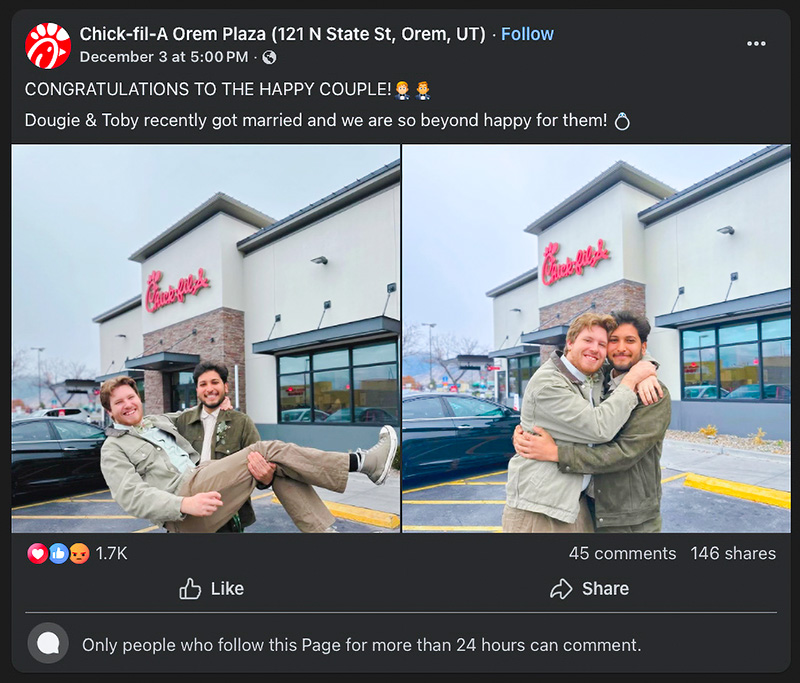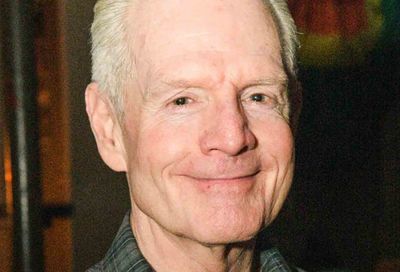Reactions to the financing of anti-gay groups by Chick-fil-A owner Dan Cathy included ill-considered behavior by some on the pro-gay side that played into the hands of our opponents, who are always looking for excuses to portray themselves as victims. There was graffiti, which is criminal vandalism. There were kiss-ins, which are designed to shock rather than persuade. And there were rash statements by several mayors who suggested that they would deny operating licenses to Chick-fil-A franchises.
However well-intentioned, these actions did more to inflame bigots than to shame them. Since many of us in the LGBT rights movement have pointed to the black civil rights movement as a source of inspiration – and since I expect many of you to take issue with my criticisms – we can profitably look to that earlier movement for lessons. As luck would have it, Ta-Nehisi Coates of The Atlantic has done our homework for us.
The magazine’s September 2012 issue contains a searching and powerful essay by Coates titled, “Fear of a Black President.” It is full of history, passion and insight – perhaps the best discussion of racial politics in America since Barack Obama’s speech in Philadelphia on March 18, 2008. Here is an excerpt from Coates:
”Part of Obama’s genius is a remarkable ability to soothe race consciousness among whites. Any black person who’s worked in the professional world is well acquainted with this trick. But never has it been practiced at such a high level, and never have its limits been so obviously exposed. This need to talk in dulcet tones, to never be angry regardless of the offense, bespeaks a strange and compromised integration indeed, revealing a country so infantile that it can countenance white acceptance of blacks only when they meet an Al Roker standard.”
This passage follows highlights of America’s long history of racial injustice. One recent example is that of Shirley Sherrod, who was quickly forced from her job at the U.S. Department of Agriculture in 2010 after Andrew Breitbart edited a video to make it appear that she was preaching racial vengeance against white people.
In fact, as the unedited tape showed, Sherrod had done exactly the opposite – eloquently recounting how she overcame her anger at the racist horrors that had been visited on her own family, including a lynching and a murder. She had preached the racial reconciliation that she herself practices; but the Obama administration was too panicked to check the facts before reacting.
Sherrod was floored by such treatment at the hands of a government led by the first African-American president. Yet her response to Coates when he approached her was to make it clear that she did not want to do anything to hurt President Obama.
My first reaction to this was to think, this is one classy lady. My second was to consider the discipline required for such restraint. Sherrod is still keeping her eyes on the prize as her family did during the civil rights movement that made Obama’s presidency possible.
There is nothing fair about this. As Coates writes, “An equality that requires blacks to be twice as good is not equality – it’s a double standard. That double standard haunts and constrains the Obama presidency….”
The gay rights movement has progressed far more rapidly than that of blacks did. On the 9th and 19th days of May this year, the president of the United States and our nation’s oldest civil rights group (National Association for the Advancement of Colored People [NAACP]), respectively, endorsed civil marriage equality.
Much is at stake. We are winning, but the backlash looms as always. If Shirley Sherrod can think twice about how to react to injustice, so can we.
Richard J. Rosendall is a writer and activist. He can be reached at rrosendall@starpower.net.
























